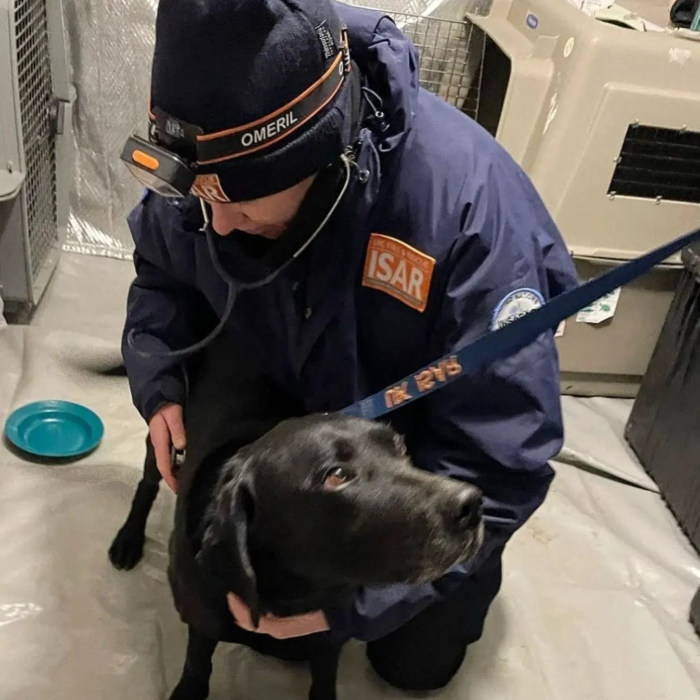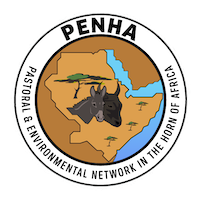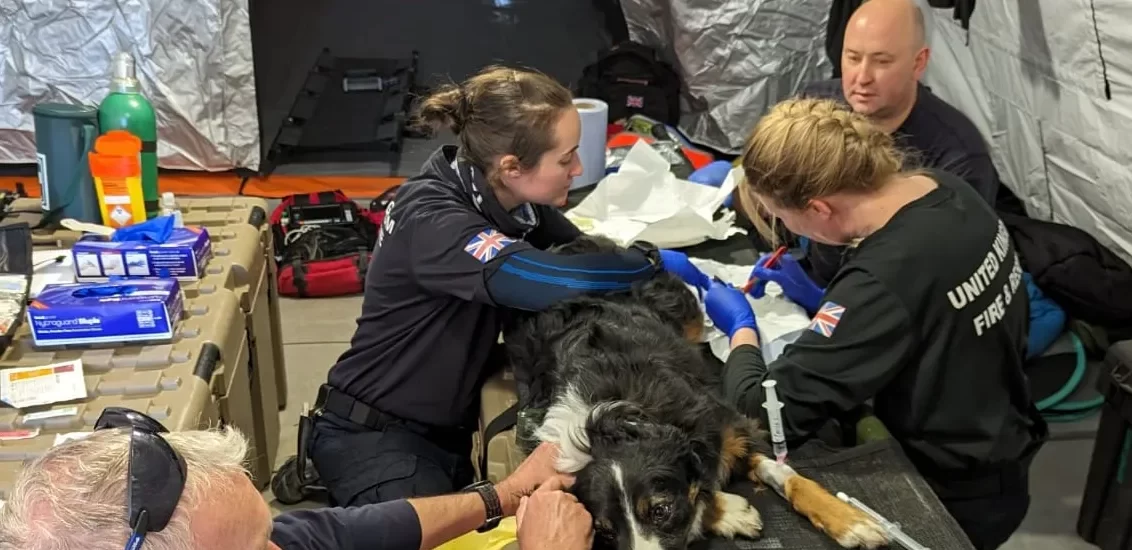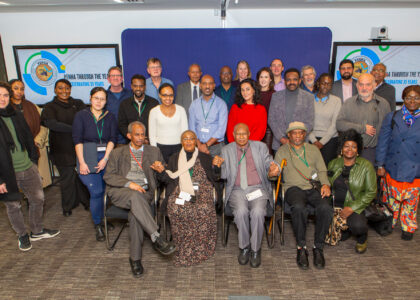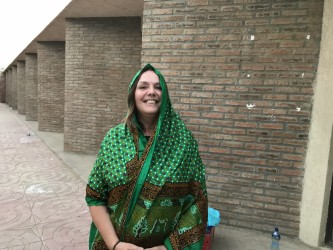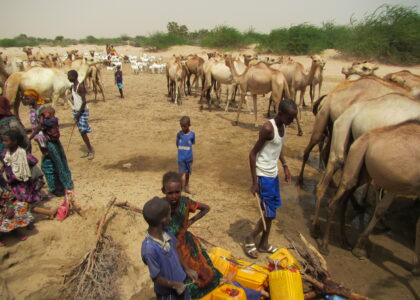Dr Victoria Phillips, a PENHA Trustee, was involved in the rescue deployment of the UK ISAR team in Türkiye. The earthquake that claimed over 50,000 people in Türkiye and Syria was recorded as one of the deadliest disasters in our history. Once she returned from her assignment, Dr Phillips reflected on her rescue efforts.
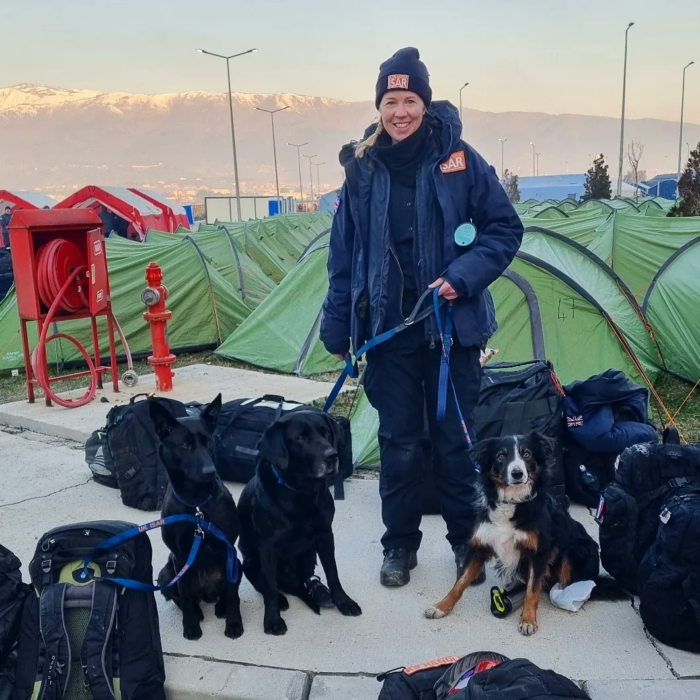
At 4:17am on Monday 6 February 2023, an earthquake with a magnitude of 7.8M on the Richter scale* occurred 17.9km below the Earth’s surface in Türkiye near the border with Syria. Nine hours later, a second earthquake of 7.5M happened just 10km below the surface in nearly the same location.
At least 10 provinces in Türkiye and four large cities in Syria were affected, resulting in a huge humanitarian crisis in a region that was already struggling with conflict, refugees and internally displaced people.
The UK international search and rescue team (UK ISAR) consists of firefighters highly qualified in navigation and survival skills, and rescue techniques including rope work at height, confined spaces, breaking and breaching, shoring and hot-cutting. The team also includes voluntary medics, vets and structural engineers, as well as search dogs from the fire service.
The UK government funds the training and management of UK ISAR to ensure the team fulfil UN requirements to deploy within six hours in response to any international disaster with the main purpose of finding missing people and saving lives.
As well as being a Trustee at PENHA and a Veterinary Surgeon Manager at Dogs Trust, I started volunteering as the Lead Vet for UK ISAR two years ago and have had the privilege of joining training exercises in the UK, Kosovo and Switzerland. My role is to monitor the welfare of the search dogs, checking them over before and after their searches, treating any injuries if they occur, ensuring their vaccinations and worming are up to date, managing the vet equipment and medications, and organising their export/import documents when travel is required.
The deployment to Türkiye initially felt like any other training exercise but with a greater sense of frustration about the “hurry up and wait” approach when we got delayed at Birmingham airport due to security concerns.
UK ISAR are completely self-sufficient during a deployment to avoid placing any additional strain on the local community, so airport security had to assess 11.5 tonnes of our equipment including our camping materials, ration packs and water for the entire team (77 people and 4 dogs), as well as generators and large machinery used for drilling through concrete. The only things we needed provided by the local government on our arrival were fuel and transport.
We were driven to a large city called Antakya in the Hatay province on the border with Syria, 48 hours after the first earthquake. This was one of the worst affected areas and we were the first large international team to arrive, so we set to work straight away. The temperature was dropping to -5C overnight and we were struggling to stay warm without moving, so it was hard to stay optimistic about finding survivors.
The roads were in chaos – traffic rules were ignored making it difficult for us to reach the area the local government had asked us to search. Sirens were constant from ambulances stuck in traffic, and car horns amplified the urgency as everyone rushed to flee the city or provide aid.
Helicopters flying overhead added to the noise, but when we finally reached our search area, most people were very quiet, aimlessly walking the street or sitting around a bonfire on the pavement where their house had once been. The air was full of dust as buildings were already being ripped down by excavators, and the smell of the bonfires didn’t completely mask worse odours that didn’t bear thinking about.
We divided into four teams and split up to cover our search area as quickly as possible. The search dogs were crucial at this stage so there was one in each team – we were on a light search and carrying minimal equipment, aiming to identify areas that needed further investigation to make a rescue later. The dogs are the quickest, most efficient and most reliable method we had of finding live victims trapped in the rubble. They have been trained to bark when they find the live human scent and I couldn’t be prouder of their hard work, stamina and bravery in completing dozens of searches daily.
Some of the hardest parts of the deployment were the scale of the disaster and the relentless requests for help from people on the street. The dogs were quickly known to be our best asset, so everyone wanted one of the dogs to search their property to check for their friends and family, even when there had been no sign of life for several days. As hard as it was, we had to say no to many people so we could focus on areas where there was reliable information about live people that needed rescuing, but it was heart-warming to see everyone’s reactions to the dogs, all wanting to know their names and even bringing them blankets to lie on when they were resting between searches.
Within a few hours of speaking to local people and searching the collapsed buildings, our spirits were lifted by rescuing a 91-year-old lady from the first floor through a broken wall in the front of her building – she was cold but still able to complain about being lowered down the ladder in a stretcher – her fighting spirit gave us hope that we would find even more survivors.
The dogs worked tirelessly and enthusiastically throughout our ten-day deployment, even though many of their searches were negative, which means they don’t get the same reward. It was clear they love searching by their excitement when their work harness is put on, or when they’re put in position to start a search. Time and time again they eagerly ran into collapsed structures over broken glass and dangerous broken concrete and rebar.
They are all trained for this type of environment and wear boots as protection, but these often fall off or get caught on something, so three of the four dogs sustained cuts to their paws. Two of the dogs also developed conjunctivitis due to the high levels of dust in the air. Thankfully, only one dog required sutures and a few days of rest to recover, but the others were able to continue their important mission with treatment and protective bandaging.
During the following week, UK ISAR saved eight people including a two-year old child, and our dogs found another three people that were later rescued by other teams. One of our rescues took almost 20 hours of constant tunnelling to save two people who were trapped in the stairwell of a hotel as they’d tried to escape – the hotel was too unstable to enter, so a tunnel was created from the building next door. When the woman was finally helped out of the tunnel five days after the earthquake, she apologised that she must look terrible without her makeup on and worried that she might smell as everyone hugged her in relief, which was another reminder about the resilience and spirit of Turkish people.
The team landed back in the UK on the evening of Wednesday 15 February, but sadly, another earthquake of 6.3M occurred in the same region just 16km below the surface on 20 February, so the local search efforts were scaled up again.
As a result of these multiple earthquakes, the extent of the damage is extreme and cities like Antakya have been destroyed beyond repair. So far, the estimated death toll is over 55,000 people and it will be years before the survivors are able to rebuild their lives, and perhaps, for the city itself, rebuilding may not be an option at all.
Within one month of returning from Türkiye, UK ISAR were called again to another disaster on March 15 2023, this time to Malawi to help rescue people trapped after Cyclone Freddy that has an expected death toll of over 1200 people so far. A vet and dogs were not required for this mission, which involved rescuing 358 people who were trapped without food and water on islands created by flooding. The team also stayed to help distribute humanitarian aid, as well as resilience training for the military to use the boats donated by UK ISAR for future use before the team returned to the UK.
The scale and magnitude of these disasters were huge, and as the frequency of these type of calamities are expected to increase due to global warming, it’s essential to take forwards the lessons learned from each event. These include the importance of local and national capacity building and disaster preparedness, whether it be for search and rescue missions or structural risk assessments. Timely response of international teams is essential for a deployment to be successful, but perhaps more important is supporting the development of early warning systems such as forecasting abilities that may be able to reduce the impact of disasters like these.
If you would like to donate to those affected in Türkiye and Malawi, please consider donating to the Disasters Emergency Committee or World Food Programme
*The Richter scale is scored 0-10, with 10 being the highest
Photo credit: Dr Victoria Phillips and her team
Dr Victoria Phillips can be reached at victoria@penhanetwork.org
